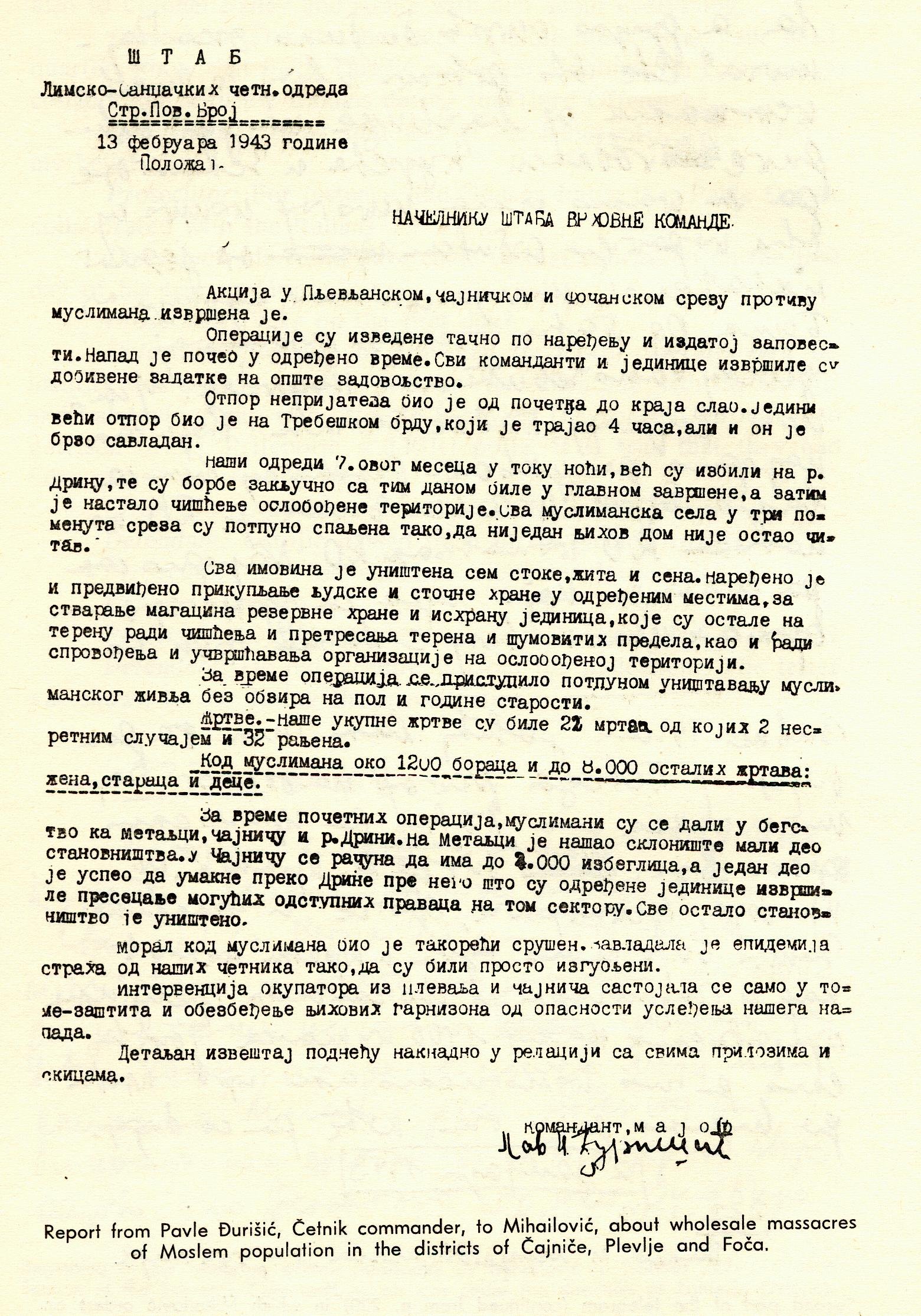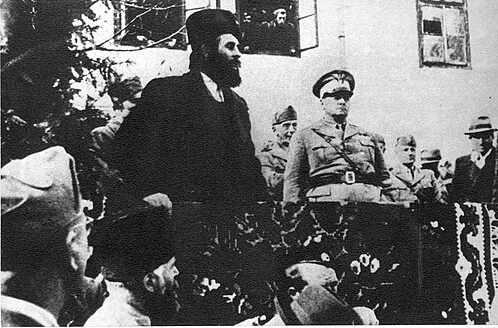AUTHOR:M.J. GDNUS
Non-governmental organizations and civic activists express deep concern and strongly condemn the statements of Metropolitan Joanikije of Montenegro and the Littoral, in which he glorifies Pavle Đurišić, commander of the Chetnik movement in Montenegro and a proven war criminal. Metropolitan Joanikije made such assessments recently during religious ceremonies in Podgorica on the occasion of paying tribute to the Jasenovac victims and on the territory of the Bosnian entity of Republika Srpska, CCE announced.
"Calling Đurišić a "great hero" and a person of "invincible character", Metropolitan Joanikije ignored relevant historical sources that unequivocally confirm his cooperation with the fascist and Nazi occupiers, responsibility for mass crimes and ethnic cleansing of the Muslim population. Such statements not only insult the memory of the victims, but also represent a dangerous attempt at historical revisionism in the function of contemporary political and identity manipulations.
Due to the continuity of similar manipulations, we remind the public of the documented facts from the biography of Pavle Đurišić, and in order to prevent further distortion of history," the CCE states.
As they add, in January 1942, Chetnik units under his command, with the help of Italian troops, attacked the partisans near Berane. A month later, with Ustasha units, they participated in attacks near Foča.
"Furthermore, upon entering Kolašin, on February 23, 1942, Đurišić's Chetnik detachments formed the infamous Kolašin prison through which about 2,000 captured partisans were tortured, and in one execution at Breza alone, 74 of them were shot. That prison was closed only on May 13, 1943.
In August 1942, he placed himself under the Italian fascist command. “Your attitude towards the occupier must be loyal and guided strictly by the orders of this command. You must not take any actions without first informing their (i.e. Italian — ed.) command about them,” reads the order he sent to all his units on August 30, 1942.
Based on the orders of Draža Mihailović, Đurišić’s Chetniks carried out ethnic cleansing of the Muslim population of northern Montenegro. The first massacres began on November 28, 1942, in Bukovica near Pljevlja, and on January 4 and 5, 1943, they carried out a campaign of terror in Pljevlja, Sjenica, Peć and Kolašin. According to his own report, from January 4 to 10, 1943, 400 men and 1,000 women and children were killed, and 33 villages were burned," the CGO states.
The continuation of this action, they explain, followed on January 29, 1943, with a focus on the area of Pljevlja, Čajniče and Foča.
"The bloodiest operations were carried out between February 4 and 7, 1943, and already on February 13, 1943, Pavle Đurišić reported to Draža Mihajlović that 1,200 armed men and about 8,000 women, elderly people and children were killed in the action.
According to the report of the Montenegrin National Commission for the Determination of Crimes of the Occupiers and Their Helpers, in crimes against the Muslim population - only in the vicinity of Pljevlja and in February 1943 alone - 1,352 people were killed, of whom 245 were adult men and 1,107 were women and children. The report also contains descriptions of the murders, and that "90% of the victims were tortured, stabbed with knives, and the women raped before being killed, often by about fifty Chetnik bandits, who then threw them into their houses to burn with them". In the vicinity of Pljevlja, 127 villages and hamlets were destroyed, 1,508 houses and 4,484 auxiliary buildings were burned.
Since 1943, it has been openly collaborating with Nazi Germany. "Đurišić's heroism" of this period also reflects the crime of July 23, 1944, in the town of Lazine near Danilovgrad, when the Chetniks shot 52 members of the KPJ and SKOJ, or members of the communist youth," they state.
For his loyalty to the Nazis, Pavle Đurišić, as a Chetnik commander and lieutenant colonel to General Nedić, was awarded the Iron Cross on October 11, 1944, the most prestigious military decoration of Nazi Germany, which was awarded exclusively with the approval of Adolf Hitler.
"In March 1945, he came into conflict with Draža Mihailović and formed an alliance with collaborator Sekula Drljević. Soon, a quarrel broke out between the two, which was exploited by the Ustashas. Shortly afterwards, he was betrayed and liquidated in the Jasenovac camp - by his former associates.
In a democratic and civilized society, church dignitaries and political actors should be held accountable for their words. If they truly want to honor the victims of one of the greatest crimes in Europe, they must do so honestly, with dignity, and without hidden political motives. Mentioning Pavle Đurišić in this context, as well as further glorifying him, is an insult to the true victims of Jasenovac, who suffered at the hands of the Ustasha regime precisely because they did not cooperate with the occupiers, unlike Đurišić.
Attempts to rehabilitate those responsible for war crimes do not contribute to facing the past or reconciliation. On the contrary, they deepen divisions and strengthen revisionism narratives that threaten civil society.
We call on all religious and political authorities in Montenegro and the region to refrain from rewriting history for the sake of particular goals, to condemn war crimes and their perpetrators, and to advocate for a culture of remembrance that respects the facts, the dignity of victims, and the universal values of humanity," CCE concludes.

